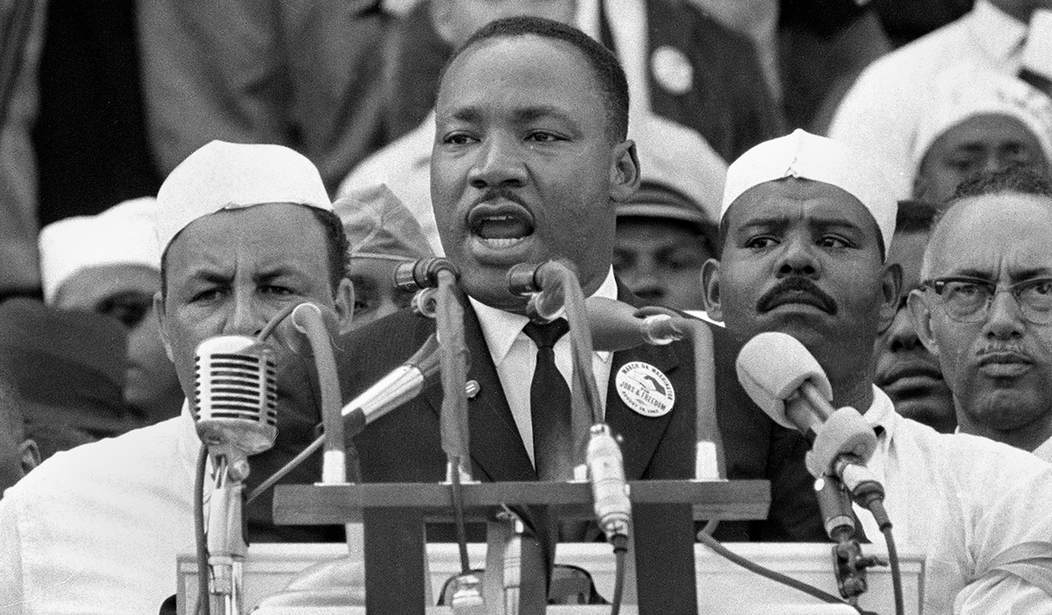In the most rapid American societal 180 of which I’m aware, cultural dictates have gone from “Skin color is irrelevant” to “People must be viewed according to race.”
We’ve transformed the definition of enlightenment from a nonchalance toward pigment into an obsession with it.
In terms of sheer technical ability, the bolt of lightning we’ve constructed to take us back to the 1940’s is impressive — in just a few years, we’ve returned to the view that human beings should be classified as white and nonwhite.
We have a new term for it (“people of color”), but the concept is wholly intact.
We’re very adept at creating new names for old groups and convincing ourselves the words make all the difference.
But in our evolution, have we yet reached a point where we argue over a hierarchy of nonwhites amid the term that was meant to include everyone but Caucasians?
Yes, we have — “we” being a law professor at Thomas Jefferson School of Law.
In her June 6th Virginia Law Review article “Why BIPOC Fails,” Prof. Meera Deo lays out the reasoning behind our new racial category of “BIPOC” — Black Indigenous and People Of Color:
While it is essentially a synonym for people of color, advocates use it to intentionally foreground “Black” and “Indigenous”…
And why? Per Meera, it’s because “these groups are both foundational to understanding the racial history of the U.S. and often not given the recognition they are due within the larger people of color umbrella.”
Meera calls to the community of all humans who are not white, noting that “BIPOC” positions groups according to how unjustly they’re treated. But there’s a problem with that:
The term purposefully creates hierarchies between people of color groups, consciously highlighting the two “to acknowledge that not all people of color face equal levels of injustice.” Thus advocates use BIPOC…to highlight the experience or agenda of Black and Indigenous people as essential, even though they are part of the overall people of color community.
By placing two racial groups at the forefront of a term meant to recognize the marginalized, wordsmiths responsible for the acronym are therefore guilty of marginalization:
[A]ll of the other non-white groups within the fold are marginalized by design, grouped together in the leftover people of color section of BIPOC. Yet Black and Indigenous people are not at the center of every contemporary racial issue.
At times, she points out, the “two groups are not even relevant to the matter at hand.”
The way Meera sees it, BIPOC should cease being employed as a catch-it-all:
It can be misleading, overly simplistic, and even incorrect when centering the experiences of Black and Indigenous communities over others within the people of color umbrella. This belittles those who are virtually erased, ignores the realities of the issue under review, and harms the communities it purports to highlight by centering them in name only. It is critical that academics, advocates, and allies utilize language that is better than BIPOC…
And what’s the potential impact of the term’s overuse?
Meera fears general nonwhite groupings may band together people who are white:
When considering language that groups people from different backgrounds together, the term BIPOC is not better than those previously in use. Using the name “people of color” gives non-whites from all backgrounds an opportunity to band together when considering issues involving them all, and especially differences between them as a group as compared to whites.
In closing, the professor hopes we can focus more on specific nonwhite racial groups…and in doing so, find “meaningful change”:
The most effective use of language is when allies, advocates, and academics use the names of the groups actually included and centered in the arguments themselves… Although BIPOC fails, there are other paths forward that will lead to more meaningful change.
Will that change bring the sort of “meaning” that unites us all?
I’d say it’s not likely. I’m not sure people leading the charge want that anymore.
-ALEX
See more pieces from me:
That’s Not the Ticket: Comedian Jon Lovitz Lances Cancel Culture
Find all my RedState work here.
Thank you for reading! Please sound off in the Comments section below.














Join the conversation as a VIP Member